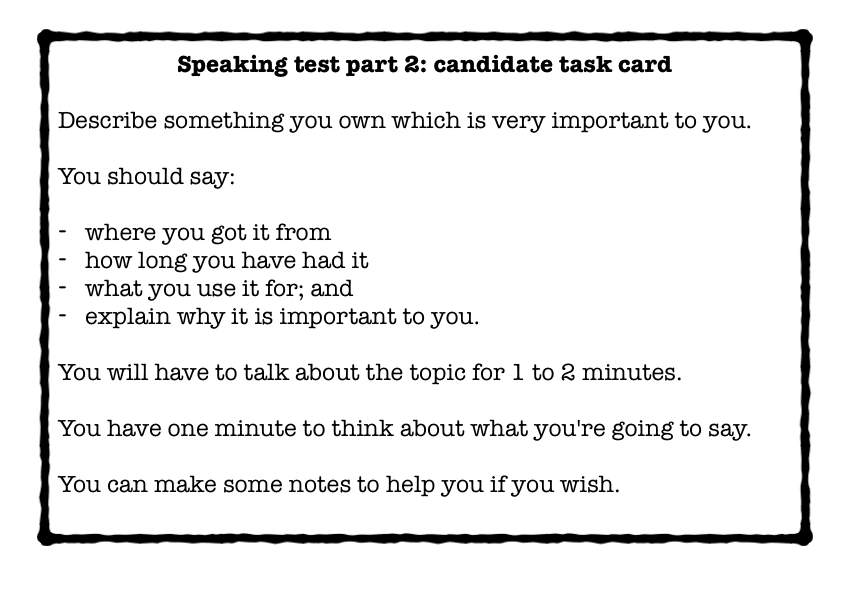As you are probably aware, the IELTS Speaking module has three sections. In the IELTS Speaking Part 2 you have to prepare and give a short talk on a given subject, usually around a personal experience. This section tests your ability to talk about a topic, develop your ideas, and use relevant vocabulary and grammar. The examiner will give you a task card on a particular topic, which will include some key points that you should cover in your talk. You will be given 1 minute to prepare before you then have to talk for 1 to 2 minutes on the given topic. The examiner will then ask you one or two questions. Part 2 takes 3 to 4 minutes in total.
In a way, this is like having to give a short speech on the spot, which can be very nerve-wracking, particularly if the speech isn’t in your native language! One easy way to calm those nerves is to take a few notes during your 1 minute preparation. Luckily, a pencil and paper will be provided for you to do just that!
Why Note Taking is Important.
- If your talk is not organized, you will lose marks! Simple as that. Remember, part of your marking is based on how coherent and fluent you are. Coherence involves following a logical and clear argument.
- Without planning, it is likely that you will end up describing a general aspect of the question rather than the specific parts. This will also lose you points. Making a brief written plan helps you to stay on topic and stops you from veering away from the points you have been asked to talk about.
- You will not impress the examiner if you start immediately without planning, whatever your level. So do use the 1 minute you are given to plan your speech and make notes.
How to Plan and Make Notes
- Write down words not sentences. Below is an example task card. For each point you should write only one or two words to use as a prompt. In total, you should not have more than 20 words.
- You should only use nouns, adverbs and adjectives for your prompt words. See my notes for the task above:
- You cannot write on the task card. So, on your provided paper, write your prompt words in a vertical list and in order of the points given. It is easier to see them this way.
- As you speak, refer to the list to organize your answer. This should help ensure that you answer all parts of the task.
- Remember that you will need to use connecting words and phrases when you speak, but don’t write them down.
- Do not prepare full answers by heart and repeat them word for word. This will sound artificial and will affect your score.
So as you prepare for the IELTS Speaking module, do practice making notes and using them to help you speak. This will help improve your fluency and coherence, which will ultimately increase your confidence and help you reduce mistakes.







